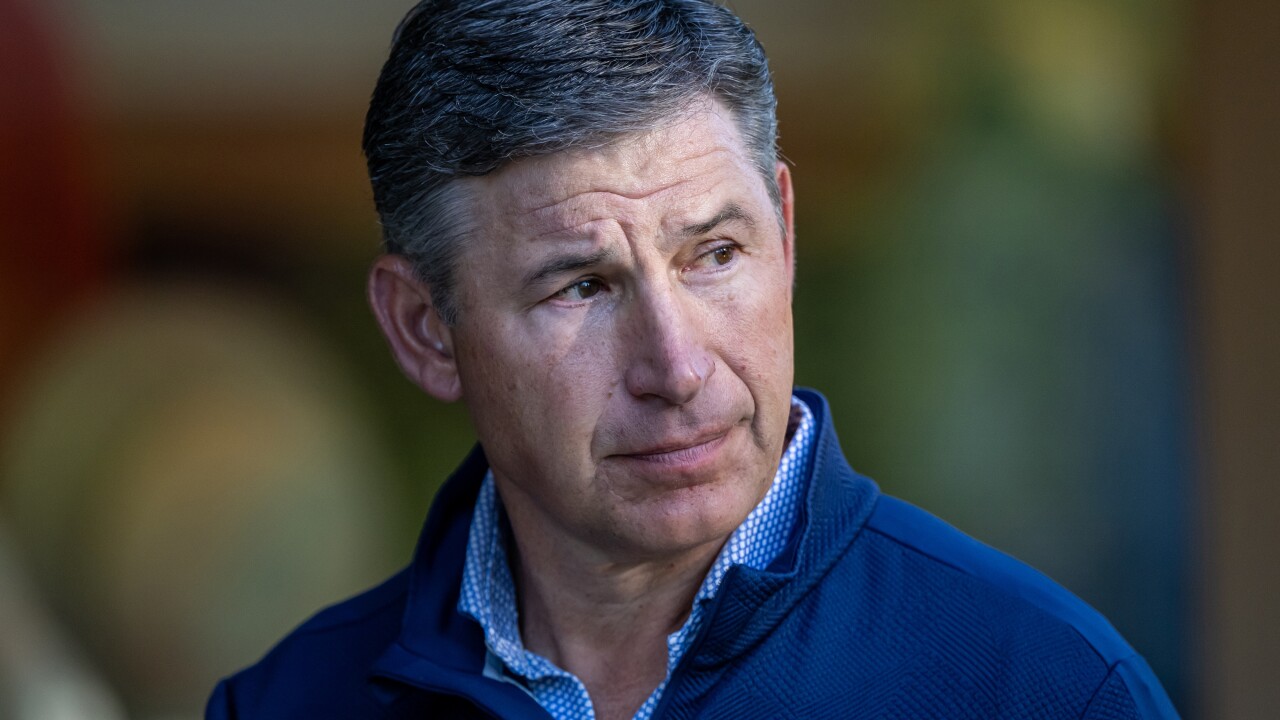Rep. Maxine Waters, D-Calif., questioned Bank of America's decision to end free online checking accounts used by many low-income consumers after the bank was a beneficiary of the recent tax reform law and earned profits of over $18 billion last year.
BofA has said it eliminated its eBanking service, which until January offered zero monthly fees to customers who bank online and at ATMs, because it no longer needed to offer discounts to get consumers to switch to online banking. But Waters, the ranking member on the House Financial Services Committee, said the decision could still leave consumers without a banking option.
"Since the passage of Dodd-Frank, banks, including Bank of America, have earned record profits," Waters wrote in a letter Wednesday to BofA Chief Executive Brian Moynihan. "This trend of all-time high profits is presumably likely to continue due, in some part, to the estimated $3.5 billion in tax benefits available to the company from the permanent corporate tax cuts from the passage of the tax reform law last year, which will also enable Bank of America to save billions more in future years."

"Given this contradiction, I would like to understand the rationale behind this decision, which, given Bank of America’s national footprint, could increase the number of unbanked consumers nationwide," she wrote.
BofA said it was open to discussing how consumers can avoid added costs.
"Our long-standing commitment to serving the needs of all our customers, including low-income, remains strong," a spokeswoman, Betty Riess, said in an emailed statement. "We always welcome the opportunity to discuss the many ways we serve our low and moderate income customers and how they can avoid monthly fees."
BofA stopped offering the accounts in 2013 and spent years transitioning customers out of the accounts. In January, BofA automatically transferred remaining customers to accounts that included a monthly fee, Riess said.
Waters joined Reps. Elijah Cummings, D-Md., and Jimmy Gomez, D-Calif., who
In her letter to Moynihan, Waters pointed out that CEO pay has skyrocketed to record levels, and that the $2.2 trillion-asset bank has "obligations" under the Community Reinvestment Act.
BofA told customers who used eBanking that their funds would be moved to a core checking account that costs $12 a month unless customers meet certain conditions such as having a direct deposit of at least $250 per month or keep a minimum daily balance of at least $1,500.
But Waters said BofA had switched customers enrolled in eBanking to one of the bank's more expensive accounts. She questioned why consumers were not given the option to switch to a cheaper account.
"Bank of America has decided to begin charging fees of $150 a year on what used to be free checking accounts, purportedly to 'streamline' its product offerings," she wrote. "I understand that you have asserted customers can have these fees waived, if they maintain a minimum monthly balance of $1,500, or contribute at least $250 a month in direct deposits, which equates to at least $3,000 a year. Though Bank of America has claimed that this service is 'a great value,' these balance amounts can be prohibitively high for certain consumers."
She listed five questions for Moynihan to respond to, including what costs the bank incurred by providing the program, and how much revenue it expects to generate by charging former free checking account customers $150 a year.
Waters also asked for information about products and services that BofA has offered to low-income consumers, going back a decade.
"Given Bank of America’s obligations under the law, like the Community Reinvestment Act, please list all current products and services, along with any related fees and minimum balance requirements on them, which are marketed or otherwise offered to low-income consumers and communities in the United States," she wrote. "Please also include a similar list for any such products and services for the last 10 years, as well as any plans to offer such products and services in the near future."
Roughly 27% of all American households are either unbanked or underbanked, meaning they have little or no access to a bank account.
"Bank of America’s decision to end its free checking will likely exponentially increase this unserved population," Waters wrote.




